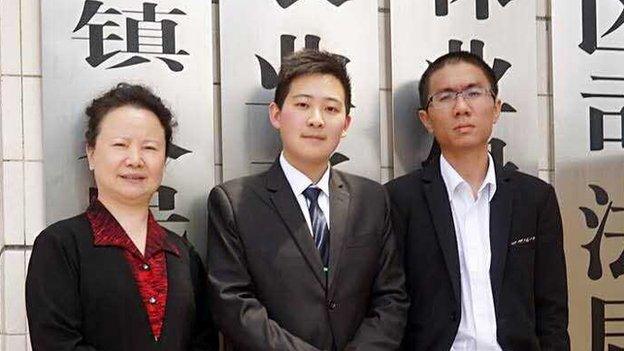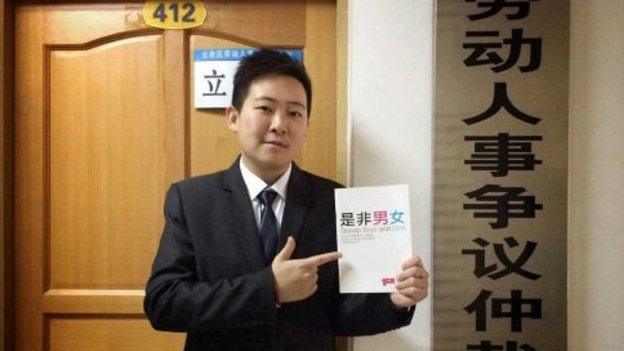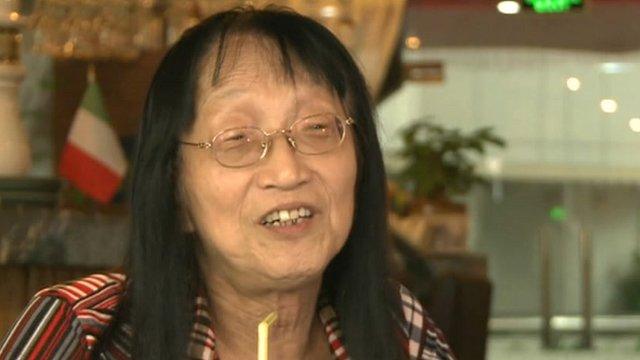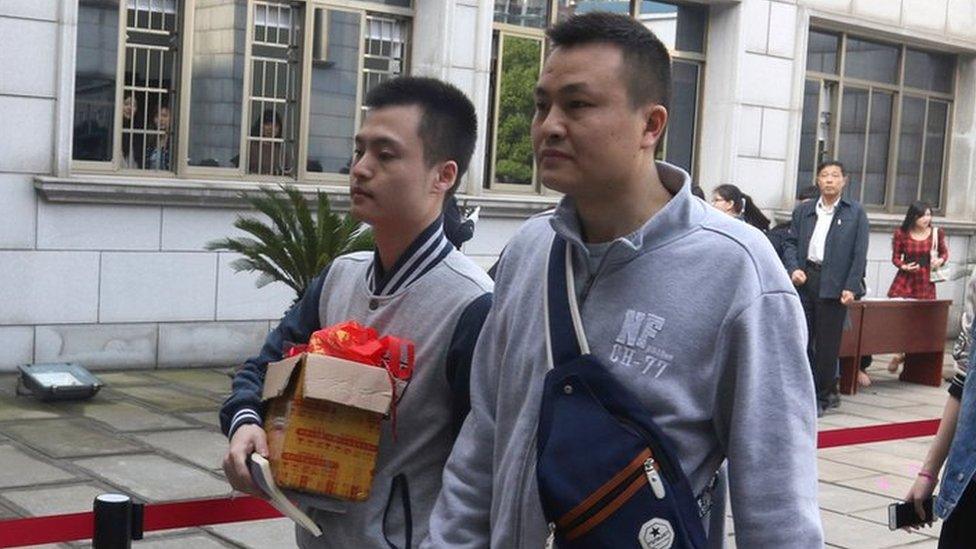China human rights: Trailblazing in the LGBT community
- Published

Mr C, flanked by his lawyers, says he is hopeful about the outcome of the case
A transgender man is claiming unlawful dismissal at a tribunal in southern Guizhou province, in the first case of its kind in mainland China. The 28-year-old, identified as Mr C, says his employers withheld his pay because of his identity.
Mr C, who was born a woman, was working in a health centre in the city of Guiyang last year, when he was fired for "wearing men's clothes contrary to the image of the centre", reports say.
So he decided to take the case to the local employment tribunal, claiming unpaid salary and unlawful dismissal.
At the first day of the hearing on Monday, Mr C's lawyers presented photos and recordings to show that there had been discrimination based on his transgender identity - but he said the health centre had not presented any evidence against this.
"According to Jin Yuping, who is in charge of human resources in the centre, I was incompetent, I refused to wear uniforms, and I was absent from work; but she said that she had no evidence in the end," Mr C told BBC Chinese.
"On our part, we stated that we brought this case not for money, but for the implementation of anti-discrimination legislation.
"The amount of compensation is not important," he added, "but if there is no written apology, then I will pursue this further."

Mr C hopes his case will help transgender people win rights in China
And he was quite upbeat about the outcome, saying "we would win if nothing unexpected happens".
"There has been a lot of support from within the community as well as expectations to win, because that would set a good precedent, give us hope in terms of employment opportunities and teach people how to protect their rights."
'Hide - or be rejected'
Mr C tried to look for other jobs after being dismissed by the health centre but was told either that there was no vacancy or to wait for notification. Since then there have been no offers.
"Within the LGBT community, many people have experienced this after they revealed their sexual orientation," he said. "So you either hide it, and wear their uniforms, or you get rejected.
"Transgender people have a hard time in China. They not only face many challenges that gay people face, but also pressures that gay people don't face.
"Take finding a partner for example. There is tension with family members, hormone issues, and social identity problems. If you change gender on your ID card, all your previous education history will be wiped out - you don't belong to yourself any more. This is insurmountable at the moment."
Mr C founded an NGO in 2007 but it has not been registered.
"I was hoping to do something for the women in the LGBT community because gay people already have their own organisations," he said. "We hope to help them to overcome obstacles."
The group has three to four core members plus many volunteers, and organises small parties and trips.
Mr C put his own money into these, as they seldom get any funding.
"Things haven't improved much over the years - there are still many ignorant people outside the LGBT community," he said. "But there have been some positive changes within the community, as many people learned to co-exist with their families peacefully."
Mr C will try to work for an NGO full time, or seek employment with the help of his family and he hopes he will not encounter the kind of discrimination that he did in the health centre.
A verdict is expected within 45 days.
Interview by Jacky Xing of BBC Chinese. Translation by Yuwen Wu.
- Published12 July 2012

- Published13 April 2016
